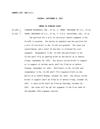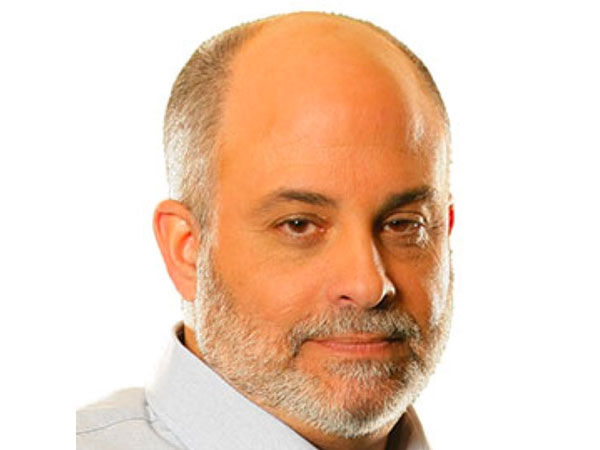U.S. Supreme Court to take up tariff challenge
National News

Audio By Carbonatix
10:44 AM on Tuesday, September 9
Brett Rowland
(The Center Square) – As a group of states and small businesses prepare to challenge President Donald Trump's tariffs before the U.S. Supreme Court, attorneys employ colorful legal expressions to make their arguments.
The Supreme Court agreed to take the case in a brief, unsigned order issued Tuesday afternoon.
Trump says the 1977 International Emergency Economic Powers Act gives him broad authority to use tariffs in response to economic emergencies. However, the states, small businesses, and some outside groups say taxation authority lies with Congress.
A group of Democrat-led states challenging Trump's tariffs under the 1977 law argued that the Trump administration is asking too much from a law that doesn't mention tariffs.
"IEEPA's use of the word 'regulate' is 'a wafer-thin reed on which to rest' the sweeping authority that the President claims," Oregon Attorney General Dan Rayfield wrote in a filing before the Supreme Court.
That "wafer-thin reed" refers to a 2021 decision challenging the Centers for Disease Control and Prevention's eviction ban, which was implemented during the COVID-19 pandemic. In that case, the Supreme Court ruled that the CDC didn't have expansive powers under a specific section of law that had never been used for that purpose.
In August, the U.S. Court of Appeals for the Federal Circuit affirmed a previous lower court ruling, but said Trump's tariffs could remain in place while the administration appeals to the U.S. Supreme Court.
In the 7-4 decision, the majority of the Federal Circuit said that tariff authority rests with Congress. It used that same language: "We discern no clear congressional authorization by IEEPA for tariffs of the magnitude of the Reciprocal Tariffs and Trafficking Tariffs. Reading the phrase 'regulate ... importation' to include imposing these tariffs is 'a wafer-thin reed on which to rest such sweeping power.' "
Trump's reading of broad authority in the 1977 law could face the same problem. Essentially, the court wants to see clear language granting such authority.
That 2021 Supreme Court decision puts it this way: "It would be one thing if Congress had specifically authorized the action that the CDC has taken. But that has not happened. Instead, the CDC has imposed a nationwide moratorium on evictions in reliance on a decades-old statute that authorizes it to implement measures like fumigation and pest extermination. It strains credulity to believe that this statute grants the CDC the sweeping authority that it asserts."
Attorneys for the Liberty Justice Center, a Texas-based nonprofit representing five U.S. small businesses, made a similar comparison in an initial filing before the Supreme Court: "It's elephants in mouseholes all over again." That referenced the late Supreme Court Justice Antonin Scalia and Lewis Carroll's 1865 children's novel "Alice's Adventures in Wonderland."
Scalia wrote in a 2001 decision that "Congress, we have held, does not alter the fundamental details of a regulatory scheme in vague terms or ancillary provisions – it does not, one might say, hide elephants in mouseholes." That referenced Alice's difficulty judging the size of things around her when she was small.
Mike Pence's nonprofit, Advancing American Freedom, filed an amicus brief Monday in the pending tariff case. Attorneys for the group made a similar argument: "The powers asserted by the President in this case are not within the constitutional authority of the Executive Branch. Rather, they belong to Congress, which cannot delegate them to the President. The President's exercise of power here is thus either outside the scope of the power granted by Congress through IEEPA or IEEPA is an unconstitutional delegation of power reserved exclusively to the legislative branch. Either way, the decisions of the Court of International Trade and the Federal Circuit striking down the President's tariffs should be affirmed."
The Supreme Court ordered that the case be heard on an expedited schedule. Opening briefs in the case are due by Sept. 19 and oral arguments are set for the first week in November.
New tariffs raised $58.5 billion in revenue between January and June of this year before accounting for income and payroll tax offsets, according to an analysis of federal data from the Penn Wharton Budget Model.
Trump has said he wants to use tariffs to restore manufacturing jobs lost to lower-wage countries in decades past, shift the tax burden away from U.S. families and pay down the national debt.
A tariff is a tax on imported goods paid by the person or company that imports the goods. The importer can absorb the cost of the tariffs or try to pass the cost on to consumers through higher prices.
Economists, businesses and some public companies have warned that tariffs could raise prices on a wide range of consumer products.







